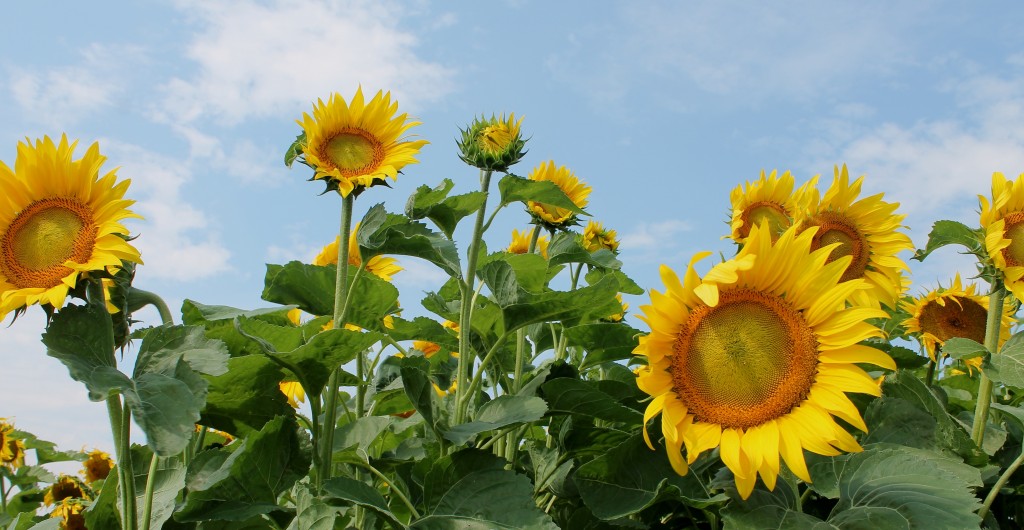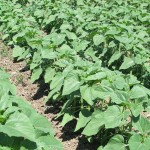Growing Sunflowers for Biodiesel Production
By Sarah Galbraith, program manager of the Vermont Bioenergy Initiative
Oilseed sunflower is the most popular biodiesel feedstock grown in Vermont (distinct from confectionary sunflower). University of Vermont Extension Northwest Crops and Soils Team has been conducting research on growing sunflowers for fuel for several years. Their recent manual “Oilseed Production in the Northeast: A Guide for Growers of Sunflower and Canola,” written by Dr. Heather Darby, Philip Halteman, and Hannah Harwood, compiles their findings and gives any new grower an overview and recommendations to get started.

Sunflowers are grown for biodiesel production on Borderview Farm in Alburgh, Vermont. Photo Credit: Vermont Bioenergy Initiative
Sunflowers are best suited for well-drained soils with high organic matter. For optimal yields, the soil will need to be amended with nitrogen, and possibly also potassium and phosphorous, depending on the results of a soil test. Selecting the right variety of sunflower is a balance with the growing season, yield, oil content, and disease resistance. The chosen variety should be planted with corn planters or air seeders 1.5 to 2 inches deep in a moist, even seedbed when the soil temperature reaches 55º Fahrenheit. This is usually in late May to early June. Seed is harvested with a combine in fall after the seeds have matured and the plant has dried down. Growers should be careful to harvest before migratory bird season, as birds can decimate an entire field in short time. The seeds are then pressed to extract the oil, which can be used for food or further refined into biodiesel for use as fuel, and the leftover seed meal can be used for animal feed or land treatment.

Borderview Farm Sunflowers at 5 weeks. Photo Credit: Vermont Bioenergy Initiative
UVM Extension provides resources like variety trial results, fact sheets, pest management information, and technical assistance for oilseed growers on their website, www.uvm.edu/extension/cropsoil/oilseeds. The Vermont Bioenergy Initiative connects diversified agriculture and local renewable energy production for on-farm and community use. See videos, publications, and helpful links for more information on growing oilseeds for biofuel at www.vermontbioenergy.com.
The Vermont Bioenergy Initiative is a program of the Vermont Sustainable Jobs Fund and partners with other organizations expanding the use of renewable energy in Vermont like Renewable Energy Vermont and the Energy Action Network. The Vermont Bioenergy Initiative also coordinates crossover with the Vermont Farm to Plate Network by providing resources and technical assistance to farmers, facilities, and communities to support energy crops to be grown alongside food production. www.VermontBioenergy.com.
1 Photo Caption for both pics: Sunflowers are grown for biodiesel production on Borderview Farm in Alburgh, Vermont. Photo Credit: Vermont Bioenergy Initiative








Leave a Reply